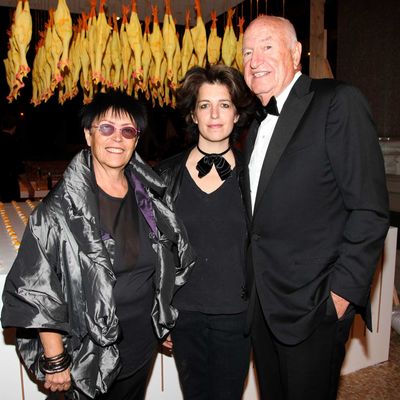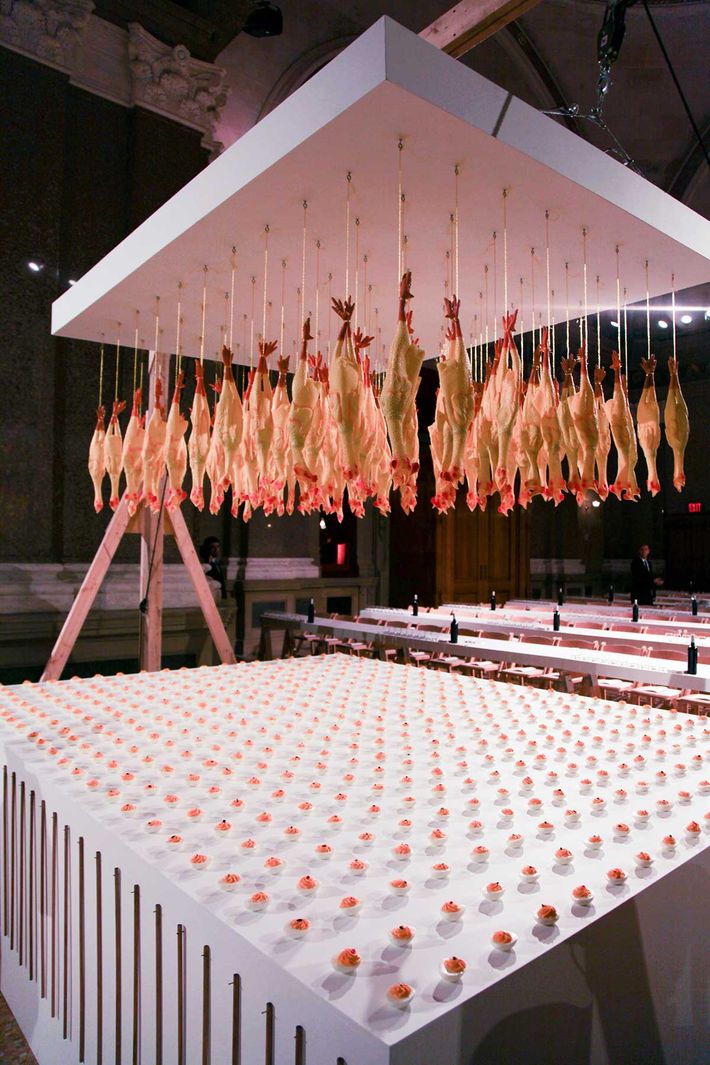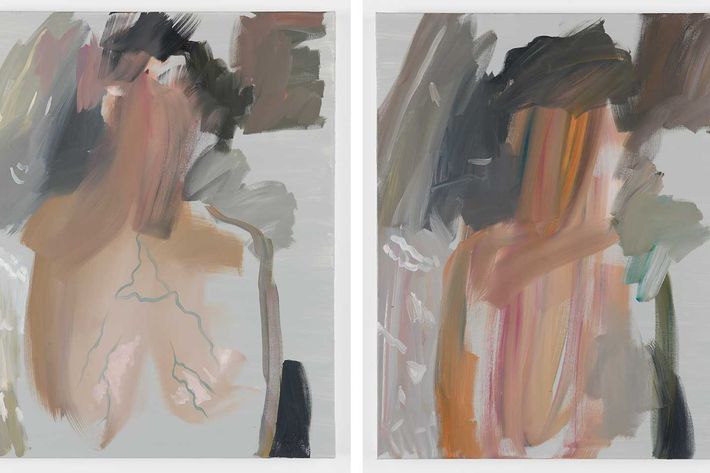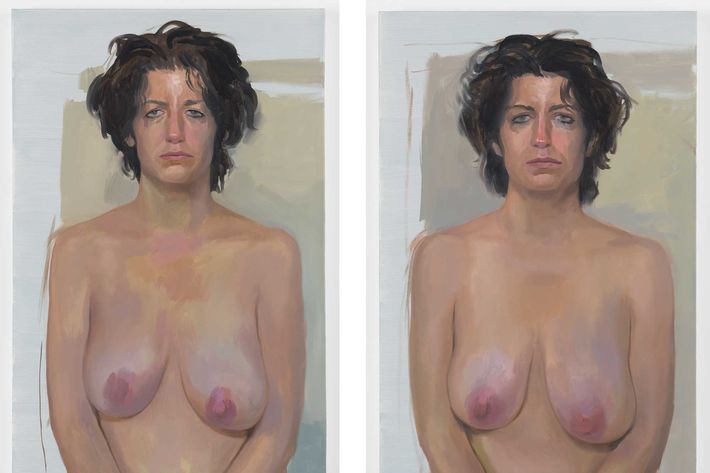
I met Jennifer Rubell 20 years ago at a birthday party, and a week later, sheÔÇÖd invited me over to dinner at her Upper East Side apartment. At the time, we were both 24, and though I knew she was Steve RubellÔÇÖs niece, I didnÔÇÖt know that she was the daughter of celebrated art collectors. Or that, together with her family, she was a burgeoning hotelier (about six weeks later, sheÔÇÖd relocate to Miami, where sheÔÇÖs lived for the next ten years, to help her brother Jason run the Albion Hotel in South Beach). Or that she threw her first dinner party at 9 ÔÇö and would eventually attend the Culinary Institute of America; intern for Mario Batali at the Food Network;┬ábecome renowned for her extravagant dinner parties, which led to a writing career as a food and home-entertaining columnist for the Miami┬áHerald┬áand┬áDomino; and author┬áReal Life Entertaining: Easy Recipes and Unconventional Wisdom. She was┬áthe first gourmand IÔÇÖd ever encountered. All of our peers at that time used their ovens for storage and ate out at places like San Loco Taco and DojoÔÇÖs caf├® ÔÇö which was totally acceptable ÔÇö and here she was, with a tricked-out kitchen, making dinner for us like it was nothing. We reconnected the year after she returned to New York, in 2009. SheÔÇÖd become a mother and, as I featured┬áin the magazine in 2011,┬áan artist, using food as her medium. More recently, Rubell and I got together a week before Art Basel to talk about the violent spectacle of the Perfoma fund-raiser, the decidedly feminine aspects of her work, and her brief departure from working with food.
LetÔÇÖs talk about the fund-raising dinner you curated at Performa on Election Night 2014. At the end of the dinner, guests shattered everything ÔÇö the plates, the tables ÔÇö with hammers on the night the GOP was seizing control of the House and Senate. Was this some kind of political statement?
Politics is not of much interest to me ÔÇö itÔÇÖs so black and white. A lot of what I deal with has to do with the parts of ourselves that we wish werenÔÇÖt there, that, when you declare yourself to be black or white, the parts that you leave out. I think art in general deals with those bits and refuses to leave out the parts that would be more convenient to ignore. I think thatÔÇÖs an important function of art versus politics. The dinner was only 370 people ÔÇö thatÔÇÖs very small for me ÔÇö and it was a very, for lack of a better term, A-list crowd.
Whom do you consider to be A-list in this context?
To me, thereÔÇÖs no worse term than A-list. But it was Klaus Biesenbach, Marina Abramovic, Charlotte Gainsbourg, Mario Batali. Art people, music people, film people. So you have all these people and theyÔÇÖve been everywhere, theyÔÇÖve seen everything. Any gala, fund-raiser, dinner is an inherently decadent action, and I feel like making that explicit: The destruction and exuberance of waste is a part of being honest with whatÔÇÖs going on. We as humans, certainly we as Americans, love violence and death and destruction. If we donÔÇÖt love it, why are we constantly making it? Whether itÔÇÖs consuming virtual violence or creating conditions of violence around the world or celebrating violence, violence brings with it a lot of pleasure for us, and itÔÇÖs true in a very personal sense for us, too. So the guests were sitting at this pedestal all night, where this intense feast unfolds. And then they realize that itÔÇÖs been there to destroy the whole time.

So how did the dinner spectacle play out up until that moment?
There were these rubber chickens hanging in the middle and everybody was sitting on one side of the pedestal tables facing them. I was very interested in the idea that the center of attention is whatever you want it to be. Underneath the rubber chickens was a pedestal of deviled eggs. You beat the rubber chickens with these sticks, and smoked paprika came out on them. People found their seats at the pedestal tables. And then this intense feast came out: pheasants with feathers, suckling pigs, and whole giant parsnips ÔÇö that kind of thing. These guys in these assless chaps, jock-strap, flag-bearing contraptions ÔÇö they were designed by this incredible artist-tailor, who sewed each one onto their bodies and cut them to glorify their asses ÔÇö the ÔÇ£brigade,ÔÇØ came out in their flag carriers with a whole stalk of roasted Brussels sprouts, and people had to slice off the Brussels sprouts. It was a scene of hilarity and decadence. Meanwhile, people have been sitting at these white pedestals on sawhorses the whole night, and these hammers materialized around the room, and people started breaking the tables, and inside the tables popped streamers and chocolates and candy and cookies. So this joyful destruction was sitting there the whole time. Oh, when people came in, the brigade had flags that had the number of each table, and then once everyone was seated, they took the flag off and wrapped it around this woman to form a kind of vaginal cloak, and they put a pot of soup in front of her and she very humbly served soup to everybody at the table. The artists who were being honored were being asked to serve. Because the only honor you can really give somebody is the opportunity for humility. And a lot of the artists who were being honored actually refused to serve. They thought it was demeaning and humiliating.
For 13 years, youÔÇÖve done a breakfast for Art Basel. What did you do this year?
Fifty cakes. ItÔÇÖs in celebration of my parentsÔÇÖ 50th┬áanniversary. [Rubell┬áhad her parents, and 48 servers, all dressed in black,┬áspoon-feed the 50 wedding cakes ÔÇö in chocolate, strawberry, and vanilla ÔÇö baked fresh that morning to the guests at the breakfast.]
Every year you come up with a new concept.
Yes, and every year, I think IÔÇÖm going toÔÇö
Give up and order pizzas?
Yeah. And even if I ordered pizzas, itÔÇÖd be a whole thing. But you know, youÔÇÖve seen this in your own life, you put one foot in front of the other, and then suddenly youÔÇÖve been doing it for 13 years. Literally, today I got seven emails of the absolute craziest opportunities to do totally different projects everywhere. And it only comes because, after a certain amount of time, youÔÇÖre the only one who does what she does ÔÇö I wouldnÔÇÖt know whom to call other than myself if I were doing that kind of thing.
YouÔÇÖve always had a relationship to food, to art, to hosting, to curating ÔÇö your parents being collectors, and you famously throwing your first dinner party at 9. Plus, of course, your uncle Steven, who was the consummate host and scene-maker at Studio 54. And now youÔÇÖve figured out a way to fuse all of it into an art form.
I think all artists make work from a place of instinct. And then you figure out what it is that youÔÇÖre doing and why, and you frame it, and you understand it. Art that doesnÔÇÖt is usually very, very bad. Because it needs the openness that instinct has. My work can seem really broad, and IÔÇÖve been thinking about what connects it to each other: ItÔÇÖs in the realm of the feminine arts. So whether thatÔÇÖs food, entertaining, wanting to get married, having a child, being someoneÔÇÖs muse or model ÔÇö any of those things, theyÔÇÖre all completely gendered feminine.


ItÔÇÖs also all about engaging.
Yes, but even engaging is a fundamentally feminine role. And in every case, itÔÇÖs been about how to deal with all of those acts and emotions and inclinations in a way that has the permanence and long-term presence of the more traditionally male media of sculpture, painting. Performance has been male and female. ItÔÇÖs where all the work turns around. So whether itÔÇÖs giving somebody the opportunity to slip their finger through an engagement ring (Engagement), or like┬áPortrait of the Artist,┬áwhere people are crawling into my belly, or dealing with the fact that the model is the artist and shares authorship of the work and isnÔÇÖt just somebody who inspires and supports and fucks the painter. I started doing the painting project, where I was posing every day in the studio with Brandi Twilley, who paints me. Together, we are Brad Jones ÔÇö thatÔÇÖs the name of our collective. In each instance, itÔÇÖs insisting that this profoundly feminine experience, which is the supporter, the defender, the mother, the hostess, the helper ÔÇö be a role that is as dead serious as the role of a painter. For me thatÔÇÖs the crossroads of all my work.
With these last few projects, you took a break from working with food.
I didnÔÇÖt do food stuff for awhile. And Brandi and I were creating all of this intensely traditional durable work. I think at some point I couldnÔÇÖt take how ephemeral food was. Somehow doing the paintings made me crave the ephemeral work. It was a totally involuntary inclination. So now I have a bunch of food projects coming up.
Can you talk about any of them?
I donÔÇÖt know if I can. IÔÇÖm working on a project in Canada in June. And another that I canÔÇÖt talk about. And then IÔÇÖm working on a sculpture show. I have a piece that Eric Fischl curated at the FLAG Art Foundation, itÔÇÖs one of my Nutcracker pieces. ItÔÇÖs so awesome to see it there, in the company itÔÇÖs in: the Chapman brothers, Laurie Simmons. And IÔÇÖm still posing for Brandi. I feel so lucky that we came together. I donÔÇÖt think IÔÇÖve ever had as deep a collaboration in any aspect of my life. ItÔÇÖs such good fortune that itÔÇÖs with her. I never lost interest in food. I think the food projects take so much out of me, theyÔÇÖre emotionally and physically so intense, and I just needed a break. I think I felt resistant to do anything that was going to be gone the next day. But that disinclination is totally gone.


